Franz:
As a resource economist who lives and works in China and travelled to Europe end of January 2020, I was forced to stay in Berlin and could not return to China, due to the COVID-19 outbreak. In late February 2020, I was on my way back to China. While walking through the streets of Berlin I get the opportunity to pick up what people are talking about. The public media don’t miss making headlines to report the latest numbers. The coronavirus has arrived in Europe and at that time was already spreading in Germany. By mid-April 2020 the numbers of infected people in Germany had surpassed those in China and end of April Germany had 157,700 and China 84,000 confirmed cases of COVID-19. By June 12 those numbers increased to 186,691 infections and 8772 deaths in Germany and 84,216 infections and 4,638 deaths in China.
While in Berlin, I had witnessed a pedestrian shouting at two Asian-looking teenagers: “You Chinese Corona Scum”. A few weeks later, in China, the fear of re-imported cases grew and similar discriminatory expressions against foreigners in China had been reported by the German consulate in Guangzhou. Simple-minded thoughts associate the infectious disease to ethnicity, although the virus makes no such distinction.
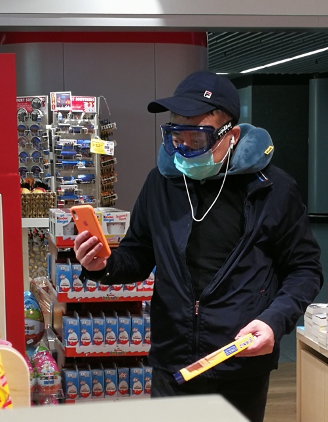 Still in Germany on a train from Berlin to Düsseldorf airport, train passengers exchange the latest news about the novel Coronavirus. More cases were confirmed in days that went by. Important events like the International Tourism Exhibition in Berlin (ITB) had been cancelled and more COVID-19 cases were being confirmed daily. The same train passengers who just discussed the infectiousness of the virus, left the train, flocked to the elevator and squeezed in tightly, instead of taking the stairs. Despite just having discussed an infectious health emergency and the need for keeping distance, their social behavior didn’t change.
Still in Germany on a train from Berlin to Düsseldorf airport, train passengers exchange the latest news about the novel Coronavirus. More cases were confirmed in days that went by. Important events like the International Tourism Exhibition in Berlin (ITB) had been cancelled and more COVID-19 cases were being confirmed daily. The same train passengers who just discussed the infectiousness of the virus, left the train, flocked to the elevator and squeezed in tightly, instead of taking the stairs. Despite just having discussed an infectious health emergency and the need for keeping distance, their social behavior didn’t change.
Maybe the virus has arrived in Europe and in the brains of people, but it hasn’t yet led to a change of group behavior. It seems as if the knowledge of the virus is insufficient to create a new reality and respective social behavioral change. If there isn’t a rule for it, which is in use, it can’t be real. People seem to be creating an imaginary distance between an inconvenient truth and the reality they feel comfortable with and are unwilling to give up for a new one. This process of changing behavioral rules, like social distancing, was then discussed for weeks among German politicians and the public and as the numbers of infections grew, the rules became stricter. While in February and March the wearing of masks in public was still officially described as being ineffective and unnecessary by Germany’s Chancellor, Minister of Health, the country’s top virologist and other authorities, by end of April, it was obligatory for all to wear a mask in public.
How can this strange behavior of people and politicians be explained? It seems that people’s knowledge about something in one moment is not taken into account by their actions in the next moment. It takes time to change behavior and it needs to be based on rules. Knowledge is a necessary but not sufficient reason for behavioral change. It is not that people are not intelligent enough, rather individual intelligence is not enough for changing social behavior. Maybe people want the freedom to choose over their own health, however, when individual freedoms impact those of others, we are treading a thin line between individual freedom and social change.
The virus has no intention. It has evolved from environmental circumstances created by people and simply does what it does best: it looks for a new host for reproduction. By doing so it coincidentally is also taking people’s freedom to choose how to put their own health at risk. Smoking or eating unhealthy food is a choice we make by trading off health against pleasure. It is the freedom of choice by trading off health with pleasure, which every smoker makes every time lighting a cigarette. The danger of the new virus, it’s infectiousness, potential deadliness and the fear of a collapse of the healthcare system, prevents people from making that choice.
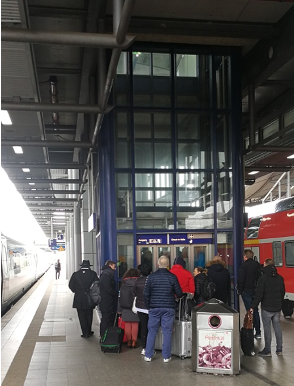 At my next transfer airport in Frankfurt, no one is wearing a mask. Neither the immigration officers, the police, the airport staff, nor the crew, nobody, except for specific people coming from or going to China. Independent from the question of how effective it is to wear a mask, it is an indication of people’s conscious response to a new, potentially life-threatening reality. Wearing a simple mask may be insufficient for protection against a virus, however it is also a passive protection of others. Thereby it becomes a symbol of not only caring about one’s own health but also of that of other’s. Although the protection effectiveness may be low, above all, wearing the mask is a statement of respecting other people’s health, independent of whether a person is infected or not. Those who do not wear it seem to be silently saying “I am healthy”, making others look like “they are not”. Thereby, wearing a mask when the majority doesn’t, can be misconceived as a stigma.
At my next transfer airport in Frankfurt, no one is wearing a mask. Neither the immigration officers, the police, the airport staff, nor the crew, nobody, except for specific people coming from or going to China. Independent from the question of how effective it is to wear a mask, it is an indication of people’s conscious response to a new, potentially life-threatening reality. Wearing a simple mask may be insufficient for protection against a virus, however it is also a passive protection of others. Thereby it becomes a symbol of not only caring about one’s own health but also of that of other’s. Although the protection effectiveness may be low, above all, wearing the mask is a statement of respecting other people’s health, independent of whether a person is infected or not. Those who do not wear it seem to be silently saying “I am healthy”, making others look like “they are not”. Thereby, wearing a mask when the majority doesn’t, can be misconceived as a stigma.
The virus uncovers these human and societal peculiarities and also opens a political pandora box. Taiwan, largely sidelined by the World Health Organization (WHO), stands out as a country which, according to earlier (than late February) predictions should have been affected more seriously, but hasn’t. Most likely that is due to the fact that authorities and experts reacted fast and took rapid measures, instead of punishing early warnings by medical doctors for spreading rumors and instead of blaming another for mismanagement. South Korea was similarly successful. Not only rapid response is critical to mitigate the spread of an infectious diseases, also early response and precaution. If information flows are constrained, controlled and censored, obviously it takes time to process this information and decide whether someone is spreading rumors or giving early warnings based on expertise and facts.
The virus has tested the responsiveness of different political systems. It has become obvious that leadership, authority and responsiveness is necessary for reacting rapidly and freedom is required for information, data and knowledge to reach decision-makers and people. The combination of both is what Duit and Galaz (2008) have referred to as a robust type governance of complexity. In this emergency situation a society needs to react collectively. Some valued personal freedoms need to be sacrificed for the sake of public health, while information about the transmission behavior of the virus needs to flow freely. The right mix of freedom versus constraints seems essential for a successful containment and robust governence of a pandemic like COVID-19.
What seems to matter is that people act on the basis of the knowledge available and that information can flow in order to create the knowledge we need to act appropriately in response. We have termed this circular flow of information, the “data metabolism” of a society: Data is transformed into knowledge and knowledge into action and the action in response to an event creates further data on the basis of which new action is performed. Between knowing what to do and doing it, is a filter of societal rules. If behavioral change needs to happen fast, this layer of rules needs to be in place before an emergency occurs. It is in essence a learning cycle. Regardless of cultural, political or ethnic differences, we can only improve our collective learning and response towards a virus as infectious as COVID-19 if we make such learning cycles work and thereby improve society’s collective intelligence.
Manasi:
We now change perspective. As a psychologist I take a closer look at the psychology of the human behavior which Franz has described above and suggest addressing the issues under the following themes:
- Transformational leadership
- Opportunity to address pending public health issues
- Rapid social policy response
- Acknowledging individual freedoms while prioritizing social responsibility
- Destigmatization
Transformational Leadership. Transformational leadership is defined as a leadership approach that generates change in individuals and social systems. It helps in developing capabilities at individual and systems level. It is open to accepting vulnerabilities and offering timely strategies/interventions for collective behavioral change. Contrary to the responses of the key global players, this leadership style enables development of person-centered and inclusive style of relating to public and one’s key constituents. Racist and xenophobic stereotyping (this is “Chinese virus”, “came from Asian people”, etc., African countries are “shit hole countries”) are actively steered away from. This leadership style also allows championing of evidence based and historically annotated, scientifically, rationally, and ethically sound arguments and decisions to be made. Concerns on distributive and social justice are at the heart of political decisions.
A transformational leadership would gather public opinion in favour of promoting collective well-being and not succumb to narrow and short-term political gains. It would allow champions at different cadres of policy, social advocacy, science and economics to lead the way than become a unilateral decision-making force.
Opportunity to address adverse social determinants of health. COVID-19 has thrown open numerous challenges decision makers would encounter around unaddressed public health issues namely sanitation, drinking water access, access to services, safe and minimum housing and education opportunities. The current health crisis is also an opportunity to address these issues. In countries and communities where these issues remain marginalized by local decision makers and actors, COVID-19 has created even more severe rifts and fissures that are hard to be filled. In addressing this pandemic there is a silver lining to find ways to address disparities that the first section of our essay talks about.
Transforming racial, gender, and class related disparities into success stories of community mobilization and awareness building would be critical. For example, the early COVID-19 days politics of masks where Asian origin travelers wore masks as though trying to protect us all from the spread that was coming from them.
How COVID-19 associated social isolation and lock down impacts the most vulnerable and how it impacts services and functioning for those who are most vulnerable needs to shift into the focus of attention as well. Discussion in the UK around the disproportionate burden of deaths amongst general population as well as frontline workers being those from ethnic minorities and people of color is a stark reality. As a psychologist who lives and works in Africa, let alone treatment and management problems, there are not enough masks or other personal protective equipment (PPE) available.
A rapid adapted social policy response towards multisectoral collaboration and timely Information flow from key political leadership are critical to the development of a well-buffed up response. How rapidly social policies and governance mechanisms are tweaked to respond to the pandemic is critical.
One of the arguments we are making is that when an optimal social response is made which tries to create a social space, prioritize the most marginalized and offer a space for people to utilize their capabilities to best act to prevent severe socioeconomic debilities. The consistency with which public health messages are communicated and complied by from the highest to lowest levels of governmentality and civil society is critical. In that regard, being scared and nervous about the corona virus, smoking or taking elevators avoiding the challenge of extra physical strain of using stairs in the airport or public places, is interesting. In several presidential press briefings at global level we can notice the discordance between the divisive and narrow messages of highest-ranking officials of the country and what the science or social policy needs, given the morbidity and mortality around this pandemic.
Key information and responses from leadership within the US, Brazil, and India have been worrisome. The hiatus between political responsibility and the need to provide socio-economic measures and the need to prioritize medical and behavioral interventions for the more vulnerable has been noticeable in some of these countries where the wrath and the might of this pandemic has not been fully understood.
Acknowledging individual freedom while prioritizing social responsibility. There is also a political and ethical stance we have in relation to responding to this pandemic. If countries and political regimes can action a response without curbing and violating human rights and dignity, strengthening their own ability to communicate well and in time-limited manner, using science and not propaganda, not only can we tackle the virus, also health, racial and social disparities that wreak havoc no less than any pandemic on any single day.
We need a polis and civility that have the ability to stir human and collective capability in a unified and proactive manner. Individuals who are not subjects of biases of all sorts but who choose to act and think rationally and responsibly, both consistently to make an impact. A polis that doesn’t suppress the voices of its people but allows opportunity to relay their concerns and become a participant in active public action.
We also know that despite the grave mortality and pain this pandemic has caused, there is a silver lining around the relief to the environment through reduction of invasive human activity footprint. Animals and ecosystems around the globe must feel lighter, freer, and more alive with all of us tucked inside. This relief would not have been possible without a pandemic of this scale. There are many issues that would beg the question of collective might and responsibility such as how many people live and die in abject poverty without any pandemic, how many people die of suicides and mental ill health, how many people in the world never have access to clean water, sanitation or even basic medical services. We have to return to these questions as we tackle COVID-19.
Destigmatization. Destigmatizing people is another issue we want to tackle head on in the context of COVID-19. It is not people of Chinese origin (or all those who “look Chinese” in the unfortunate ignorant world we inhabit), people who are living in less sanitized environments or those who are involved in serving patients, from whom we need to maintain a distance. It is also critical to address the full import of intersectional stigma. In some parts of the world, especially in India, where nurses and doctors were beaten up and actively ostracized due to their involvement with COVID-19 patient care. In Wuhan by contrast, severe police atrocities accompanied such as punitively locking affected families from coming out of their homes, or physically and roughly removing family members from COVID-19 patients was seen. In many parts of Kenya, a day or two after the lockdown severe police atrocities were reported by people who were returning from work or caught unawares about the lockdown.
We have to also work towards providing services and looking after people with multi-morbidities such as those with HIV, disability, elderly, and those in challenging situations of life such as poor women about to deliver babies. Stigma can easily be attributed to those who do not live in sanitary conditions, where as in reality the people who may have spread the virus inadvertently were global travelers and clearly better resourced people. In this sense this virus is a greater leveler. It will affect good and bad, rich and poor, high and low cadre equally. We know that stigma mitigation needs strong institutional responses. We also know that those in power and in public offices can show sensitivity and awareness in tackling these stereotypes and biases we uphold without cross-checking facts or reality. In addition, we need people to be aware of their unconscious biases that trigger further injustice and disparity. The pandemic is offering us an opportunity to think through this and make fundamental transformational changes—not just to respond better during the next pandemic but also to improve general societal grievances.
What facilitates human behavior in response to environmental change are institutions and the informal and formal rules, values, and norms a society puts in place to regulated interactions among people and in response to changing environments. In times of public health emergencies, institutions need to be in place, which keep data and information flowing but at the same time constrain certain freedoms and change business as usual. So that an early and rapid collective response is possible, by means of which the spread of an infectious disease can be slowed and contained. People’s fears and prejudices, largely due to a lack of knowledge, need to be taken serious and taken away by knowledge dissemination on how the virus spreads and how its spread can be prevented or slowed. Fears of loosing freedoms are also caused by mistrust in a political leadership which has allowed social inequalities to emerge. Regaining trust in political institutions and leaders is an enormous societal task which requires transparency, communication and shared rights and responsibilities in society. New forms of democracy must be actively created which are beyond either the market or the state.
Together:
With COVID-19 the world has hopefully woken up and noticed how much local and global institutional structures, legal and ethical instruments, checks and balances have been purposefully weakened or made ineffective and economic, political and social imbalances and inequalities have been created. Robust governance must find new paths from treading the thin line between individual freedom and social change towards newly transformed societies, preparing themselves for global collective action.
COVID-19 is a stark reminder that the world around us has drastically changed. In the Anthropocene we need to think and act differently. Our thinking needs to be more ecocentric and less anthropocentric. Our behaviors need to be more social and less ego-centric. We need to overcome our fears of others and avoid looking for simple causes for a very complex world in which we now live, because if we do not think and act together, we all lose. We now know how positive and powerful individual behavioral change can be, even it has involuntarily been imposed on us. The planet is taking a breath from us not traveling around the world to the next business meeting, for example.
At this time our plea may sound confusing but it is critical to begin this new interconnected thinking and to give voice to science, rights based advocates, civil society actors and find ways of addressing needs of the most vulnerable for whom this pandemic is not only about their health but also their economic survival.
Franz Gatzweiler and Manasi Kumar
Xiamen and Nairobi
Reference
Duit, A and Galaz, V 2008. Governance and Complexity—Emerging Issues for Governance Theory, Governance: An International Journal of Policy, Administration, and Institutions21(3): 311–335

about the writer
Manasi Kumar
Manasi Kumar is with the Institute of Excellence in Global Health Equity in New York University Grossman School of Medicine, US. She is an Affiliate Professor at the Department of Psychiatry, University of Nairobi Kenya.

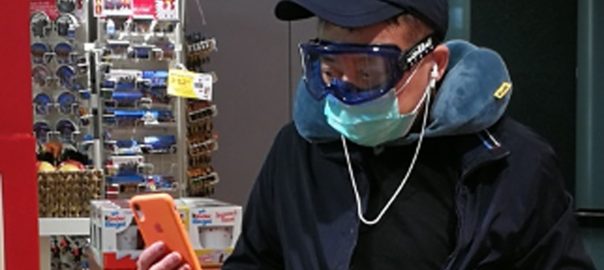

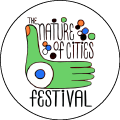
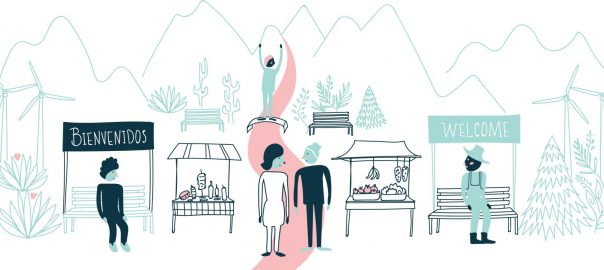
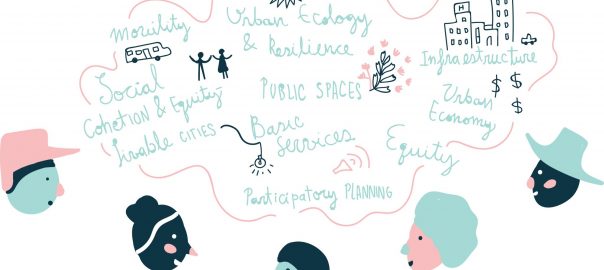
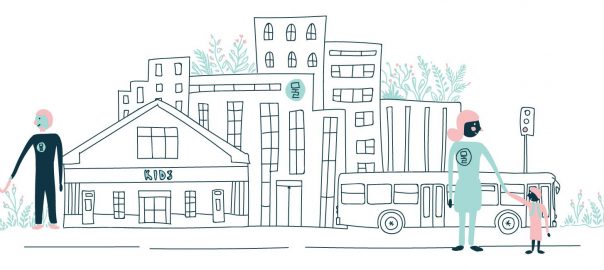
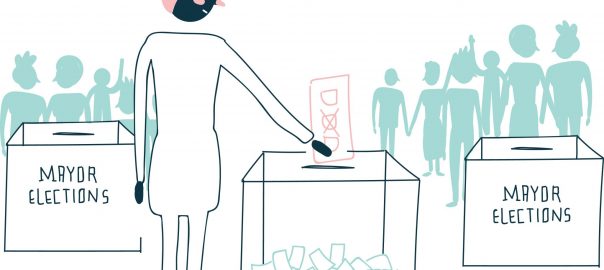

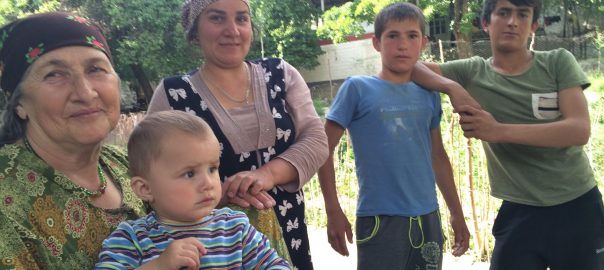
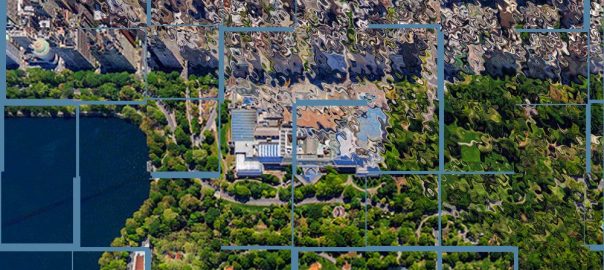
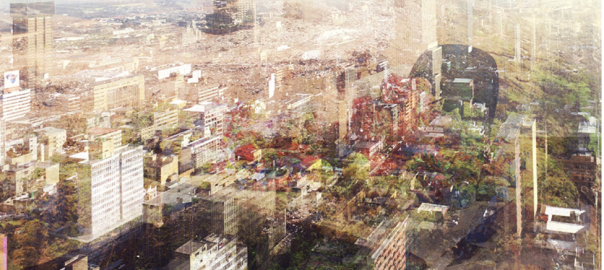
Dear,
Your impressive descriptions and explanations concentrate on a more or less homogenous audience whose behavioral patterns should and must change. The general imperative based on the pronoun ‘we’ is surely correct as in most reason based ethics.
Unluckily, many fellows have not adopted reason as their most important guideline in life (Franz: ‘individual intelligence’).
If, on the other hand, desire would not be the strongest driver in and of social life, its function in the economic synthesis would fail. The most common messages in all media in everyday life aim at consumption – promising enjoyment and status as well. A global phantasma. The modern subject is subdued to an economy which crosses markets and individual desire.
If ‘reason’ is linked to the obsessive functions of desire and consumption the homogeneity of Manasi’s and Franz’s target audience would turn a little bit more fragmented. In marketing – which is my profession – one of the most important tools is ‘segmentation’. I. e. finding closer or more distant groups of people who fit to a purpose, target or intention.
A recent issue due to the new virus is that everyone is part of the problem – but those who ignore (actively or passively) spoil suggestions based on common reason. Mass communication activities in e.g. Germany by governmental institutions simplify everything by assuming a generalized ‘we’ who should follow rules. While such a ‘we’ does hardly exist in reality. But politicians feel well in their stereotypes.
Within the personal unconscious, where wishes and desire are hosted, a collective ‘we’ is rare! On the level of behavior in contrast greed, egoism and dominance are far more widespread.
So, is there a split language, which sends contradictory messages to the world? One based on words, reason and consciousness while the other prefers symbolic and voluptuously charged items, condensed in form of goods (vs. values)?
While the economy of goods demands for submission to general rules, especially the availability of monetary equivalents whose imperative is to have them at one’s command? Which consequently forces human beings to work for a salary and thus affirm the existing order of master and slave (German: Herr und Knecht; ‘Knecht’ is the knight in a despotic order while ‘slave’ is a more ancient term related to possession)? But there is Gayatri Chakravorty Spivak’s provocative question: ‘Can the subaltern speak?’ In other words: is there a dialogue between the subdued modern subject differently arranged than phantasmatic desire? I shurely do not intend to entrench everything in the magic power of desire but at least a considerable part of the driving forces of ‘we’ as collectively synthesized subjects is touched by what reason calls irrationality.
We are facing a problem of communication (including ‘sense’ of words) using the pronoun ‘we’.
But, even most committed scientists and researchers encounter the difficulties of a too euphorically addressed audience. Within such a collectively generalizing ‘we’ the important position of the ‘other’ remains hidden (French: autrui, l’autre).
All this can be understood well, no question, as fast and effective solutions are needed when our fellows incredibly suffer.
This interjection is just a reminder to not being forgotten in discourses, which intend to turn to the difficult approach from the ‘other’ side of culture, too (French: l’envers).
It is surely, as you say, on the social level a political pandora box. This dimension ads one more axis to the complex picture. It is our task to translate it into meaning.
Thank you for your evocative article, Manasi and Franz!